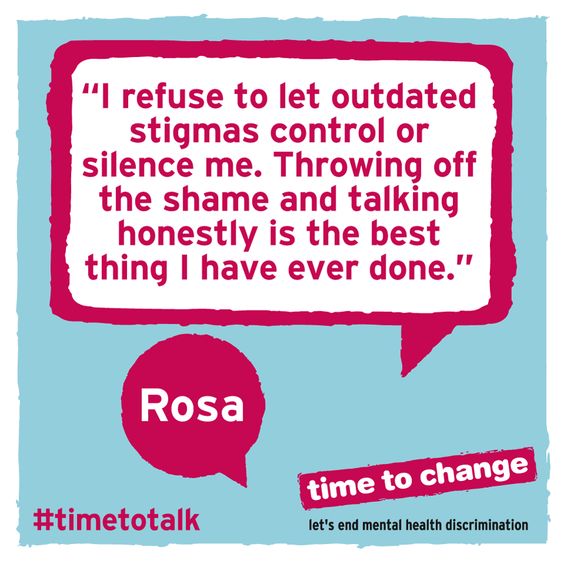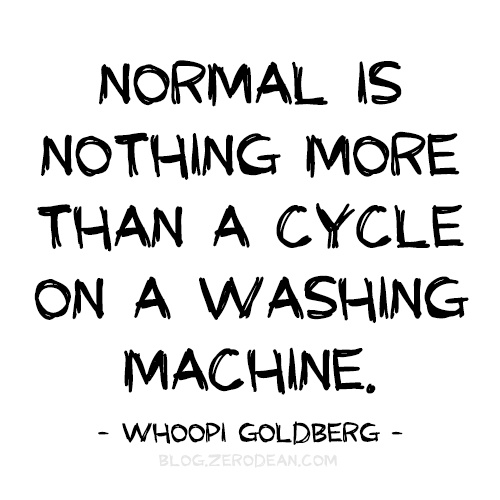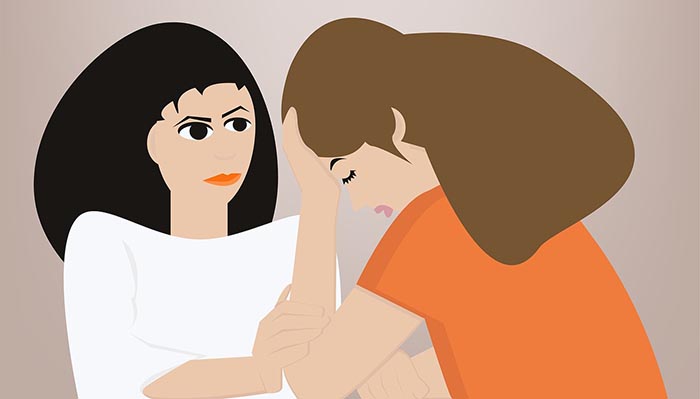Chances are that within your lifetime you will experience some form of mental health problem, the most common of these being depression and anxiety. But because most people with a mental health condition will never access any formal types of support or treatment, many of these mental health problems will go undiagnosed. Longitudinal studies (i.e. research conducted with the same people over many years) support the notion that experiencing a diagnosable mental health condition or disorder at some stage during a person’s life is the norm, not the exception. A study recently published by Schaefer and colleagues (2017) established that over 80% of participants from their health and development study were found to have a diagnosable mental health condition, from the time of their birth to midlife. This was amongst a representative group of more than 1,000 people studied over a four decade period.
So if most of us will experience mental ill-health at some time in our lives, why is it so hard for people to recognise the signs and symptoms of this in themselves, and subsequently access treatment? Here are five reasons why people may be reluctant to seek professional help. You may also be interested in our free online course Making sense of mental health problems.
1: Mental health stigma and its impact
Regrettably there is still a stigma associated with being diagnosed with a mental health condition. Understandably, given this stigma, people with mental health problems can worry that they will get judged and seen as weak, so many can end up keeping their experiences to themselves or denying that their problems exist. Fortunately, there is now greater protection against discrimination on the basis of mental ill-health, as a result of legislation like the 2010 Equality Act. This legal protection makes it easier for people to open up about their mental health problems, especially in the workplace. In addition to this legal advancement, large-scale public campaigns have sought to challenge mental health stigma, and increase awareness of its negative impact. For example “Time to Change” in England, which has sought to reduce mental health-related stigma and discrimination since 2009.

2: Problems in the mild to moderate range
Every individual is different, and it can be hard for us to recognise if what we are experiencing is ‘normal’ or not. As the saying goes, “normal is nothing more than a cycle on a washing machine” and the real norm is that most of us will experience a period of mental ill-health sometime in our lives. For the majority this will take the form of something in the ‘mild to moderate range’ of difficulties. For example, temporary periods of feeling low are common, and are often a normal reaction to the stressors we can experience. For most people seeking support from their friends and/or family members can help them get through these difficult times. Self-help resources and interventions like mindfulness can also be useful in assisting people in overcoming life’s challenges. If your low mood or other mental health problems persists, affecting your sleep, relationships, job and/or appetite this can indicate that you may require some additional help, and a visit to your general practitioner (GP) would be recommended.

3: When is it really bad?
It is important to be able to recognise when a mental health problem has progressed to becoming a major issue. Many people can struggle to notice in themselves when their mental health problems are more severe. This might seem surprising, but because a person can be suffering over a long period of time, their symptoms may not initially have a dramatic impact. In addition to this, even when mental health problems can be debilitating, a person may still feel that their problems aren’t bad enough to warrant professional treatment. If you are having persistent worries, distressing feelings or frightening experiences it can really help to get support and information. This may initially involve visiting your GP. Sometimes people may need specialised mental health services and a GP can help people access services. GPs assist many people with their mental health problems, and recently there have been some indications that they are supporting more and more people with mental health problems.

4: Securing treatment
There are a range of supports and interventions available for people with mental health problems. But it can be hard to know what to look for when attempting to get help. It can be overwhelming and exhausting just finding the right type of support for you. Do you want a psychotherapist? A practitioner psychologist? A counsellor? Is medication an option? Is a combination of medication and face-to-face therapy the best interventions for you? What is funded and what do you need to pay for yourself? There are also the challenges associated with getting a session or appointment that is at a time and place that is convenient to you. There is Improving Access to Psychological Therapies (IAPT) which began almost 10 years ago and has delivered treatment to over 900,000 adults with anxiety and depression, both in individual sessions and in group-based format. However, there can be waiting lists for IAPT and for other state-funded forms of therapy. For those with the funds available to pay for treatment, websites like welldoing.org can assist people to find a therapist.

5: A lack of hope
Hope is of fundamental importance to all humans, but when someone is struggling with mental health problems, this can be compromised. Sometimes people will not access help, even if they recognise that they have significant issues, in part because they feel so negatively about their future. A lack of hope in regard to one’s future is a sign that a person needs to seek help. It could be from a family member, your GP, the Samaritans, from the MIND infoline, or a trusted friend.

Most of us will experience an episode of mental ill-health during our lifetime. The challenge is recognising the signs and seeking appropriate help when you need it. One of the best thing you can do is to open up and talk to people you trust about how you’re feeling and ask for help when you need it.
Reference
Schaefer, J. D. et al. (2017). Enduring mental health: Prevalence and prediction. Journal of Abnormal Psychology, 126(2), 212-224.
This resource is part of the 'Wellbeing and Mental Health Collection' created by the Open University in Wales. You can learn more and find courses, articles and other activities on the collection's homepage.






Rate and Review
Rate this article
Review this article
Log into OpenLearn to leave reviews and join in the conversation.
Article reviews